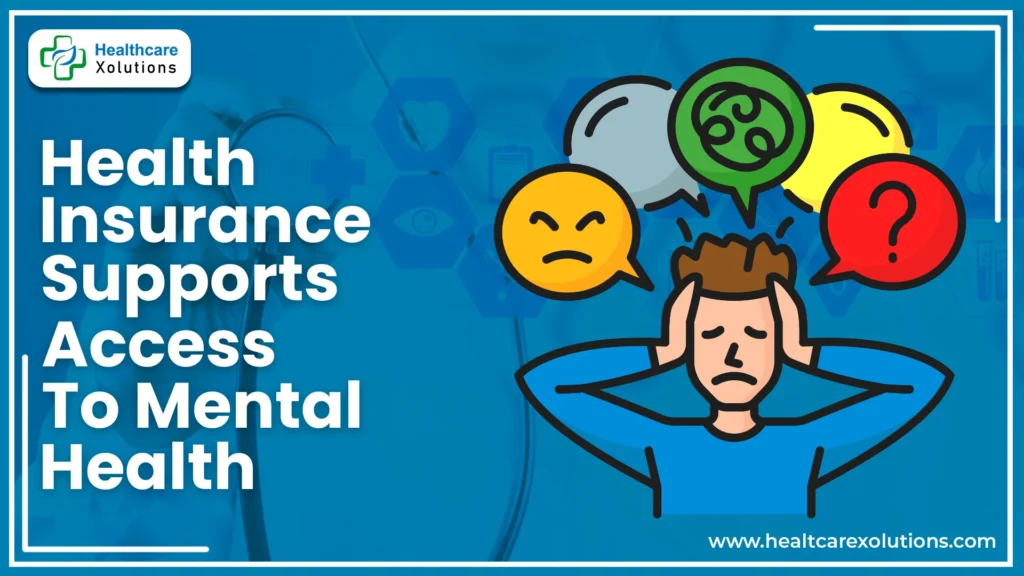How Health Insurance Supports Mental Health Services | Complete Guide 2025

In today’s fast-paced world, mental health has become a crucial aspect of overall well-being. However, accessing mental health services remains a challenge for many due to financial constraints. Health insurance plays a pivotal role in making mental health care more accessible and affordable. As awareness of mental health conditions increases, insurance providers are expanding their coverage to include therapy, medication, and emergency care.
This article explores how health insurance supports mental health services, the challenges that persist, and ongoing efforts to enhance coverage.
Key Takeaways:
- Health insurance significantly improves access to mental health services by covering therapy, medication, and emergency support.
- Parity laws require insurers to cover mental health treatment at the same level as physical health conditions.
- Challenges such as high costs, limited provider networks, and stigma still hinder accessibility.
- Telehealth services, expanded provider networks, and public awareness campaigns are improving mental health coverage.
Table of Contents
What Are Mental Health Services?
Mental health services refer to a range of professional care and support options designed to help individuals manage and improve their mental well-being. These services address psychological, emotional, and behavioral health issues and may be provided by trained professionals such as psychiatrists, psychologists, counselors, social workers, and therapists.
Who Can Benefit from Mental Health Services?
- Individuals experiencing stress, anxiety, or depression.
- Those diagnosed with mental health disorders (e.g., bipolar disorder, schizophrenia).
- People recovering from trauma, abuse, or grief.
- Individuals struggling with addiction or substance abuse.
- Families and caregivers of individuals with mental health conditions.
Why Are Mental Health Services Important?
- Helps individuals manage mental health conditions effectively.
- Provides coping mechanisms for stress, trauma, and emotional challenges.
- Reduces the stigma surrounding mental health.
- Improves overall well-being and quality of life.
The Growing Importance Of Mental Health Coverage:
Mental health disorders affect millions worldwide, ranging from anxiety and depression to severe conditions like schizophrenia and bipolar disorder. According to the World Health Organization (WHO), one in four people will experience a mental health condition at some point in their lives. Historically, mental health care has been underfunded and overlooked in insurance plans, making it difficult for individuals to afford necessary treatment.
Recognizing the need for better mental health services, governments and healthcare providers have introduced mental health parity laws. These laws mandate that insurers cover mental health treatment at the same level as physical health conditions, ensuring better access to care.
How Health Insurance Supports Mental Health Services: Step-By-Step Guide
1. Coverage For Therapy and Counseling:
Health insurance helps cover therapy and counseling sessions, reducing the financial burden on individuals seeking professional help. Many plans now include licensed psychologists, psychiatrists, and therapists, making therapy more accessible.
2. Access To Psychiatric Medication:
Medication plays a crucial role in managing mental health conditions. Health insurance covers prescription medications such as antidepressants, anti-anxiety drugs, and mood stabilizers, making it easier for individuals to adhere to treatment plans without financial hardship.
3. Inpatient and Outpatient Mental Health Services:
Some mental health conditions require hospitalization or intensive outpatient care. Health insurance covers inpatient stays, rehabilitation programs, and support groups, ensuring individuals receive comprehensive treatment when needed.
4. Emergency Mental Health Support:
Many insurance plans now include coverage for mental health emergencies, such as suicidal crises and psychotic episodes. Services like 24/7 crisis hotlines, emergency room visits, and immediate interventions help individuals receive urgent care.
5. Workplace Mental Health Programs:
Employers are increasingly offering Employee Assistance Programs (EAPs) as part of health insurance benefits. These programs provide free or low-cost counseling, stress management resources, and mental wellness workshops to support employees’ mental health.
Challenges In Mental Health Insurance Coverage:
Despite improvements in mental health insurance, challenges persist:
- Limited Provider Networks: Some insurance plans have a restricted number of mental health professionals, making it difficult to find suitable care.
- High Co-Payments and Deductibles: Even with insurance, high out-of-pocket costs can discourage individuals from seeking regular therapy or psychiatric consultations.
- Stigma and Awareness: Mental health stigma still prevents many from seeking treatment, even when insurance covers it.
- Coverage Gaps: Certain services like alternative therapies, long-term counseling, and holistic treatments may not be covered.
Steps Toward Better Mental Health Coverage:
To improve mental health access, governments, insurers, and healthcare institutions are:
- Expanding Telehealth Services: Many insurance plans now cover online therapy, making mental health care more accessible.
- Enhancing Mental Health Parity Laws: Strengthening laws to ensure mental health services receive equal coverage as physical health treatments.
- Increasing Provider Availability: Expanding mental health professional networks and encouraging more therapists to accept insurance.
- Raising Awareness: Educating the public about available mental health coverage and reducing stigma through awareness campaigns.
Conclusion – How Health Insurance Supports Mental Health Services:
Health insurance plays a crucial role in supporting mental health services by covering therapy, medication, inpatient care, and emergency support. While challenges remain, ongoing efforts to expand coverage, reduce costs, and eliminate stigma are bridging the gap between individuals and the care they need. As mental health awareness grows, comprehensive insurance coverage will be essential in promoting well-being and improving the quality of life for millions worldwide.
FAQs:
Does health insurance cover therapy and counseling?
Yes, many health insurance plans cover therapy and counseling sessions with licensed professionals.
Are psychiatric medications covered under health insurance?
Most insurance plans include coverage for psychiatric medications, such as antidepressants and mood stabilizers.
What should I do if my insurance has a limited mental health provider network?
You can check if your insurance offers out-of-network reimbursements or explore telehealth options for more provider choices.
Are emergency mental health services covered by insurance?
Many plans cover emergency mental health services, including crisis hotlines, ER visits, and immediate psychiatric intervention.
How can I find out what mental health services my insurance covers?
You can review your insurance policy or contact your provider for detailed information about covered mental health services.
